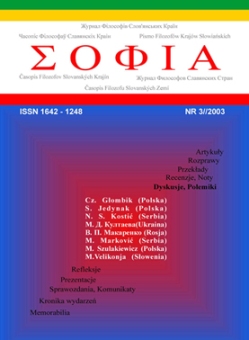
Slovenian and Polish national religious mythologies. The comparative analysis. Part I
Słoweńskie i polskie mitologie religijno-narodowe. Analiza porównawcza. Część I
The text focuses on one specyfic aspect of contemporary Slovenian and Polish political construction of reality: their religious-national mythologies. Both nations are palced in „Latin (or Catholic) religio-cultural pattern”, therefore some common characteristic can be observed, but on the other side also considerable differences. In first part of the text some theoretical considerations – like the definition of „Christoslavism” – are presented, and after this the complex background of its historical formation among Slovenes and Poles is discussed. In the second part of the text, this Christoslavic structure and mythological features of Slovenian and Polish religious-national mythologies are analysed: the „immanent Catholicism” of both nations, religious differences with the neighbours, religious-national messianism, mythic interpretation of historic events, demonisation of the adversaries, strong popular devotion to the Holy Virgin; and folk religiosity. In the conclusion, some main similarities as well as differences between the two religious-national mythologies are summarized.
More...